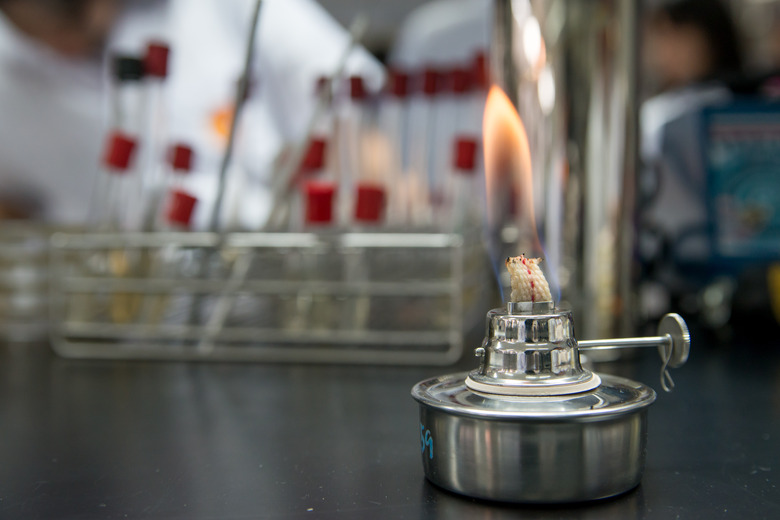Physical Address
Suite 5, 181 High Street,
Willoughby North NSW 2068
Physical Address
Suite 5, 181 High Street,
Willoughby North NSW 2068

The molar heat capacity is the amount of heat that must be added to raise 1 mole (mol) of a substance in order to raise its temperature one degree (either Celsius or Kelvin). The molar heat capacity can be found by using the molar heat capacity formula which requires taking the specific heat and multiplying it by the molar mass.
The molar heat capacity formula is shown below:
(molar enspace heatenspace capacity =enspace specificenspace heattimes molarenspace mass)
What is the specific heat? The specific heat of a liquid is the amount of heat that must be added to 1 gram of a liquid in order to raise its temperature one degree (either Celsius or Kelvin). The greater the heat capacity, the more heat is required in order to raise the temperature.
The heat capacity is more general than either of the terms above. It represents the amount of heat required to raise the temperature of a given quantity of the substance by one degree.
The specific heat of water is 4.18 J/g-K. It is important to note the units: Joules are for energy or heat. The Kelvin is for the degree increase in heat. Finally, g is for the stated amount of the substance.
Remember, the molar heat capacity of a substance is the heat capacity of 1 mol of a substance. This means that in the units you should include mol instead of grams.
Instead of grams, you need to convert into mol. This requires use of the molar heat capacity formula. That means you need the specific heat of water and the molar mass of water. The molar mass of water is 18.0 g/mol.
(molar enspace heatenspace capacity = Biggl(dfrac{4.18enspace J}{mol*K}Biggr)Biggl(dfrac{18.0enspace g}{1enspace mol}Biggr))
Multiplying that together you get:
(molar enspace heatenspace capacity = 75.2enspace J/{mol*K})
In general, in order to find the molar heat capacity of a compound or element, you simply multiply the specific heat by the molar mass.
For example, the specific heat of methane (CH4) is 2.20 J/g-K. To convert to molar heat capacity you can make use of the molar heat capacity formula: Multiply the specific heat by the molar mass of methane. The molar mass of methane is 16.04 J/g-K.
(molar enspace heatenspace capacity = Biggl(dfrac{2.20enspace J}{g*K}Biggr)Biggl(dfrac{16.04enspace g}{1enspace mol}Biggr))
Multiplying the above together you get:
(molar enspace heatenspace capacity = 35.3enspace J/{mol*K})
In order to calculate how much heat is needed to raise the temperature of a given amount of a substance by a given number of degrees you can use the following equation:
(q=nC Delta T)
Here, q is the heat, n is the number of mol, C is the molar heat capacity, and ΔT is the change in temperature.
For example: How much heat is needed to increase the temperature of 5 mol of mercury (Hg) by 10 K? The specific heat of mercury is 27.8 J/mol-K.
Thus,
n = 5 mol
C = 27.8 J/mol-K
ΔT = 10 K
q = ?
Plugging this into the equation gives:
(q=5enspace molenspace HgBiggl(dfrac{27.8enspace J}{mol*K}Biggr)(10 K))
So the amount of heat required to heat 5 mol of Hg by 10 K is:
(q = 1390J)
You can also make use of this equation to find the number of mols of a substance if you know how much heat was absorbed.
For example: You know that a sample of calcium carbonate (CaCO3) has been raised by 5 K, the energy absorbed was 550 J, and the molar heat capacity is 82 J/mol-K.
n = ?
C = 82 J/mol-K
ΔT = 5 K
q = 550 J
This means that you can rearrange the original equation so that instead of solving for q, which you already know, you can solve for n.
(n =dfrac{q}{CDelta T})
Now, plugging in the known values:
(n =dfrac{550 J}{(82dfrac{J}{mol*K}) 5 K})
Finally, this means that the sample had:
(n = 1.34 mol)
This equation allows you to determine any of the four quantities, given that you have the other three!